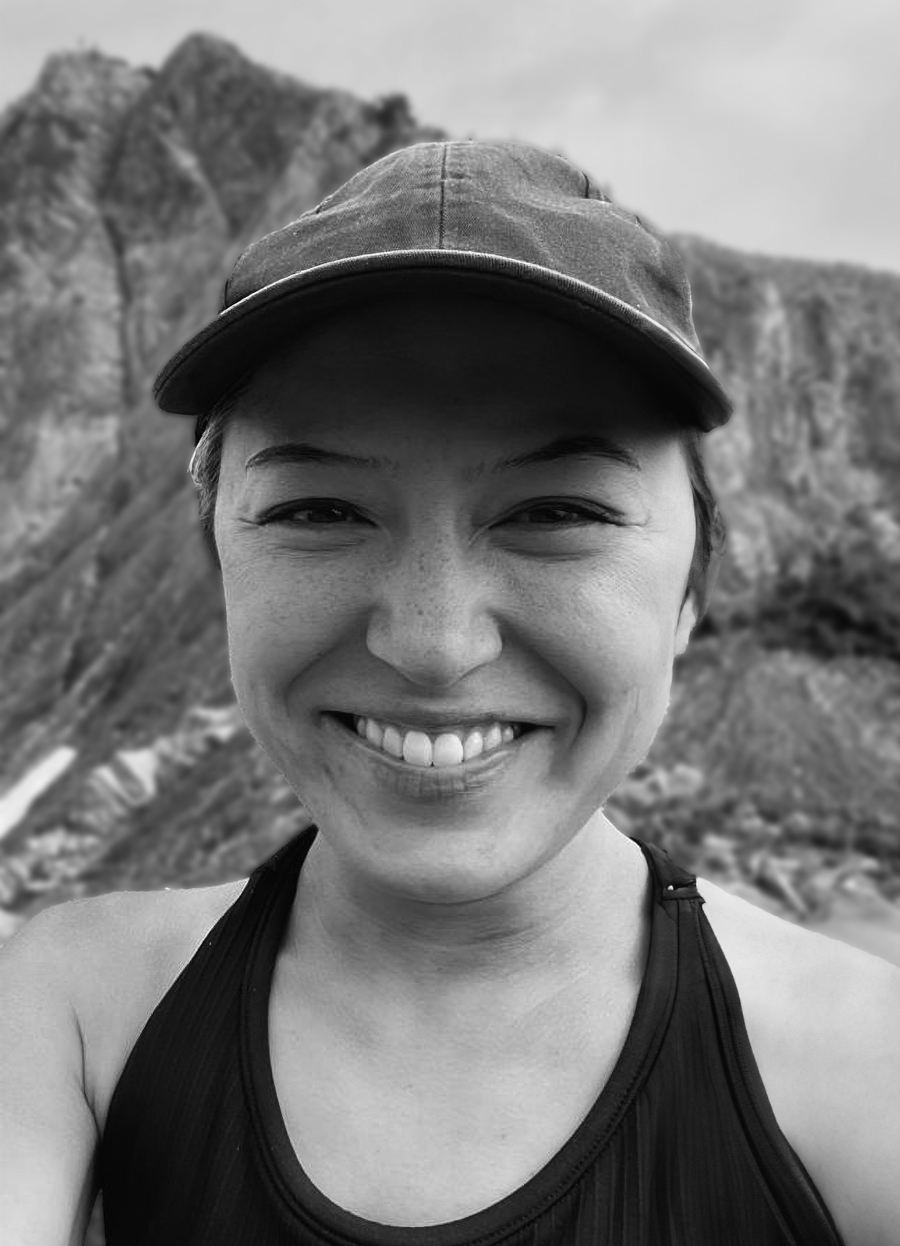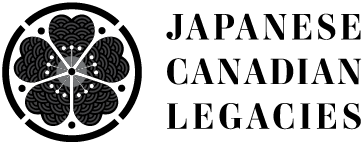Introducing: Chika Buston

As the first intake of Intergenerational Wellness stream enters the assessment phase and we prepare to open Intake 2, we are happy to introduce Chika Buston. Chika joins the JCLS team as Intergenerational Wellness Program Manager, bringing with her a wealth of experience.
Chika, welcome to the JCLS team, it’s great to have you on-board, overseeing the Intergenerational Wellness stream.
First and foremost, it is an honour to serve the Nikkei community as the Japanese Canadian Legacies Intergenerational Wellness Program Manager. I greatly look forward to learning, connecting with the community, and seeing projects come to fruition.
Can you tell us something about yourself?
To share a bit about my background, I am a mixed heritage woman of 1st generation (Issei) Japanese and 4th generation Anglo-Italian ancestry. I was born in Kyoto, and my maternal family is from the Kansai region, where I regularly spend my travels in Japan with my Obāchan.
My paternal family has multi-generational ties to Vancouver’s East End and shared close connections to Japanese Canadians in the Strathcona and Templeton neighborhoods. Like many Japanese Canadians, my father worked in the commercial fishing, canning, and logging industries for years prior to obtaining his teaching certification and moving to Japan, where he taught English at Kansaidai Medical University and Berlitz.
When my family immigrated to Vancouver, my mother heavily relied on local Japanese cultural resources, service organizations, and news sources like the Vancouver Shinpo to support her integration. As children, my siblings and I studied Japanese during weekly Nihongo Gakkō classes on Saturday mornings. Much to my chagrin, it meant I couldn’t sleep in on weekends, but I’m grateful as an adult for the Japanese language and cultural education I received.
Is there anything in your life experience that gives you a particular affinity for the IG wellness program?
For readers familiar with or interested in kanji, my given birthname (知加) binds me to my mother and knowledge (知) and to Canada (加). While this name has given rise to evolving interpretations for me over time, I’ve begun thinking of it as an invitation to interrogate what we mean when we talk about heritage, belonging, and citizenship. Whether as a Japanese Canadian or member of any Canadian immigrant/settler population, how does one reconcile competing diasporic identities against the inherent legacy of colonialism? How do cultural memory, lived experience, and intergenerational trauma shape how one moves in the world? More importantly, how does understanding one’s history inform one’s sense of collective responsibility towards the betterment of present and future generations? These are the kind of broad questions that draw me to this work and which, I believe, make Intergenerational Wellness a social priority beyond the scope of the Nikkei community.
Unlike many Japanese Canadians, my family was not interned during the 1940s. During that period, my Japanese grandparents experienced the catastrophic devastation and societal collapse brought about by two US atomic bombings and years of warfare. Meanwhile in Canada, my beloved Nonna (who sadly passed away in 2009) suffered discrimination as an Italian woman due to a reinforced perception of Italian Canadians as Fascist allies during and post-WWII. Many people struggled to survive during those years and eschewed their heritage in the name of safety, acceptance, and respect. This kind of cultural ‘amnesia’ is not to be treated as a neutral social adaptation or mere historical accident; it was in direct response to systemic structures and deliberate government actions that made it unsafe for people to exist otherwise. What are subsequent generations meant to do with this information? Where do we begin piecing together the rubble and what do we rebuild from it?
Throughout my engagements with the BC Nikkei Community, I’ve had the privilege of working alongside incredibly dedicated anti-racism advocates (many of whom have been doing this work far longer than myself). Now more than ever, I’m mindful of how quickly this work unravels unless people continue to claim space and make their lived experiences understood. This is another reason why I feel intergenerational wellness projects are so imperative; they are at the heart of anti-racism, and being seen and bearing witness are both essential to bringing greater peace and healing to impacted individuals and families.
You’ve been around the Greater Vancouver JC community for a while now. Is there any work you’ve done that’s prepared you for this job?
I possess over a decade of professional experience in the non-profit and public sectors, and bring broad skill sets in project management, strategic communications, labour relations, grant administration, and research design to my role. Currently, I am on a temporary leave assignment from the Canadian Union of Public Employees (CUPE) British Columbia Division to oversee the management of the Japanese Canadian Legacies Intergenerational Wellness Grant Funding Stream.
Concurrent to my professional life, I have served my community and unions in various capacities that have familiarized me with a range of cross-sector issues and interests. From 2013-2019, I served on the Board of Directors for the Greater Vancouver Japanese Canadian Citizens Association (GVJCCA), prior to which I volunteered with Tonari Gumi as a volunteer musician, the Powell Street Festival Society, and the Nikkei National Museum and Cultural Centre. During my tenure on the GVJCCA Board of Directors, I became acquainted with NAJC Redress efforts and the work of local organizations serving the Japanese Canadian Community in BC.
JCLS is preparing to open a second intake of IG Wellness – is there anything you can say to families who are thinking of applying for family healing and sharing funding but are not sure?
1. When planning your project, please carefully review the Fund Guidelines and familiarize yourself with eligible vs. non-eligible expenses.
2. Before completing your application online, give due attention to the mapping out the following elements:
FEASIBILITY
Don’t bite off more than you can chew. Be realistic about your project scope and design it to be manageable within the budget, resources, and timelines at your disposal. Also consider enlisting qualified and skilled people who can elaborate in greater detail on what your project will entail and its chance of success.
WHO
Who will be involved in your project? Does it involve survivors, descendants, and multiple generations? Who are you assigning to execute a given portion of your project? Do the people involved possess the relevant skills and qualifications to accomplish what they’re assigned to do?
WHAT
Define exactly what you want to accomplish and list the exact steps involved in achieving your project goal. Also describe what resources you will draw upon to complete your project. This information will help you draft your budget.
WHERE
Does your project involve attending specific locations? If so, what are those locations and how are they strategic or relevant to your project goal? Ensure to capture travel costs in your budget.
WHEN
Clearly define your project timelines based on the completion deadlines specified in the Fund guidelines. Also clearly indicate who is assigned to a task and by when they will complete it.
WHY
Be prepared to explain why you feel this project is important and/or relevant to the goal of intergenerational wellness, family sharing, and healing. Also consider the possible long-term benefits or resonance the project will have upon its completion.
3. When designing your budget, you’ll be asked to breakdown your expenses based on the following categories. Try to be as detailed as possible about your projected expenses and sources of funding.
Purchases (i.e., materials and tools, equipment, software and subscriptions, printing costs, etc.)
Rentals (i.e., equipment rental, venue rental, etc.)
Labour (i.e., professional fees, honoraria, etc.)
Travel Expenses (i.e., air/ferry travel, ground transportation, accommodation, etc.)
Administrative Costs (i.e., fees, couriers/shipping costs)
Contingency (other unexpected expenses)
As a friendly reminder, please provide a breakdown/rationale for any estimates that meet or exceed 10% of your budget ask.
Our office has also received applications with budget totals exceeding the amount available through the fund. In order to process your application as quickly as possible, please make sure to provide a list of confirmed additional sources of funding if your budget ‘ask’ surpasses the fund amount.
If you have any budget-related questions, please feel free to call 604.760.7650 or email healing@jclegacies.com for further assistance.
Thank you to all the applicants for Intergenerational Wellness in categories 1, 2, and 3. Applications are being looked at by our assessment team and results will be released February 15.
Applications for a second intake of Intergenerational Wellness will open March 1, 2024.
Please visit jclegaciesfund.com/funding-streams/intergenerational-wellness to read the guidelines and prepare for your application.
